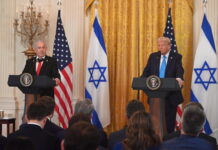
Rights activist and author, Moazzam Begg, reflects on the Muslim contribution to British colonial wars and questions to what end are we celebrating it?
Like many British Asians, I grew up listening to my father’s stories of his father and grandfather’s serving and fighting as Indian soldiers of the British Army under the Raj.
I never met my grandfather, but I’d look at his war medals in awe and dreamt of following in his footsteps – at least in my youth.
I seriously considered joining the British Army after leaving school but racism and the First Gulf War stopped me in my tracks. How could I be part of an army that saw me as a second class citizen while it invaded, occupied and killed Muslims – to whom I was discovering my re-connection with?
Despite the pride I’d felt about our family’s military history and traditions – our family tree goes right back to the Great Mughals, and records my ancestors were all soldiers. However, I’ve always struggled with the idea of them serving as soldiers of the colonial British occupiers.
I never knew for sure what motivated them to fight for Britain, especially when the Ottomans were the enemy in World War One. My dad said it was simply because they were professional soldiers. Perhaps, but they were also very strong in their faith and I’m certain that at least fighting against the last bastion of the Islamic Caliphate would not have been lost on them. Even Gandhi supported the ‘All India Khilafah Movement’ that opposed severe British impositions on the Ottoman Caliphate after the war, which eventually led to its abolition.
A recent article in The Guardian by Harriet Sherwood also provided another indicator: “We were slaves.” Nand Singh spoke of a “curtain of fear” separating the Indian and white soldiers. They were subject to floggings and other inhumane physical punishment, paid less than their white counterparts, segregated in camps and on trains and ships, denied home leave, and barred from positions of command.”
Subscribe to our newsletter and stay updated on the latest news and updates from around the Muslim world!
In fact, when Indian soldiers saw the freedom they witnessed in areas they helped liberate in Europe, they too yearned for the same thing back home, ironically, from the clutches of the people they were fighting and dying for.
The Ottomans
I also know that many soldiers were literally forced to conscript, with teenage boys taken by British forces and families threatened if they refused to serve. Others had to either serve or starve to death.

There were exceptions of course. I recall reading about an entire clan of Afridi Pashtuns fighting for the British who literally got up and walked out of a military campaign in Iraq (Mesopotamia) against the Ottomans, once they realised they had been lied to, and that their enemies were in fact Muslims, they walked all the way back home to India.
Others even joined the ranks of the Ottomans and saw it as a religious duty to “fight alongside the army of Islam”. There were revolts by Muslim and Hindu soldiers in Malaya who refused to fight the Ottomans. Many were executed in what was known as the Singapore Mutiny of 1915.
North Africans and sub-Saharans also contributed in the same way, fighting for the French in far off colonies – from Africa to South East Asia and in both world wars. Yet today, French Algerians and others face some of the worst discrimination in Europe.
Celebrating Muslim contribution to British wars
There has been much fanfare in recent times about Britain finally recognising the contribution of Indian, African and Caribbean colonial troops to their war efforts. Indeed, this recognition is long overdue, but to what end?
So that we can say “look how much we sacrificed for your wars, your countries, your principles, your ideals and your future and still you don’t see us as equals?”
For those who don’t know their history, we even sacrificed our “third qiblah” and allowed it to fall from British Mandate Palestine to modern day Israel. We don’t need to tell them how much we sacrificed. Palestine contains Al-Aqsa and the best we can do today to “challenge” it is to visit it – as long as Israel lets us.
I’m not questioning or disparaging the intentions or courage individual soldiers. That is with their families, and ultimately, their Lord. But what pride is there in celebrating a role in the destruction of the last central Muslim authority, for an empire that takes over a century to recognise your contribution in that act of treachery, only so you can say “stop discriminating against us because we lost our hearts and sold our souls for the glory of your Empire and we’re not even an afterthought in your history.”





















